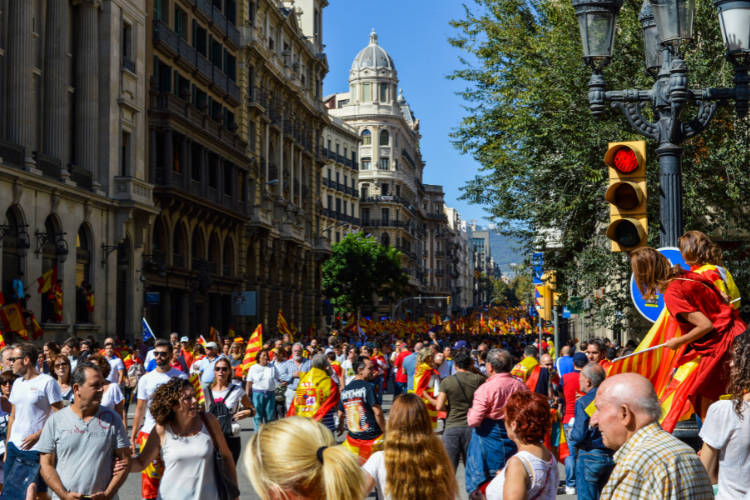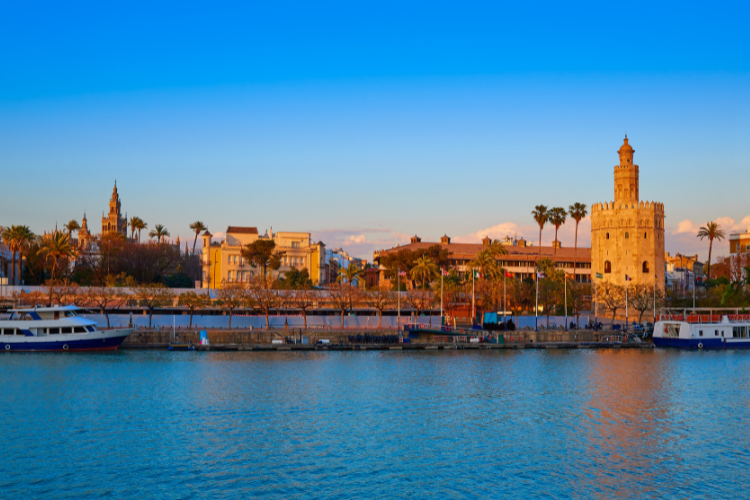Last Updated on January 9, 2025 by Laila Oliveira
Everyone knows that Portugal is an amazing country to visit and live in. But what do you really know about Portuguese culture and history? Knowing the history behind the people helps us to better understand their culture today. And us, expats in Portugal, may just as well get to know them a little better. In this article, discover 15 curious things about Portugal you probably didn’t know.
1. Portugal has the oldest borders in the world
With the same borders since 1297, Portugal is the country that has least changed its geographical space in the world.
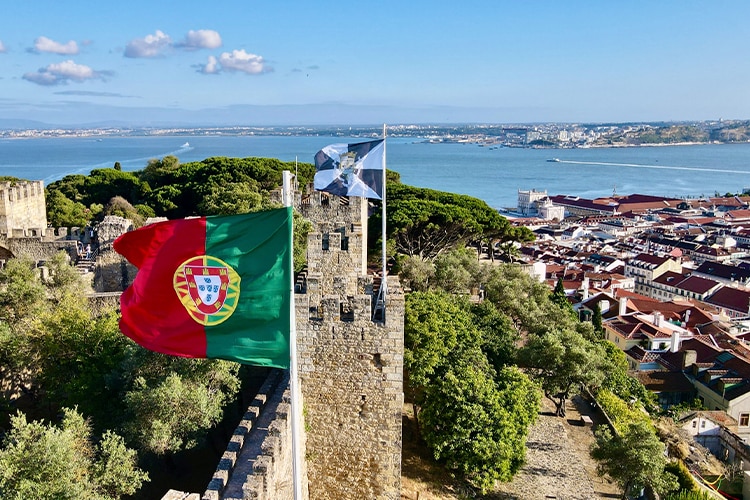
The country has been surrounded by Spaniard neighbors for hundreds of years and, although there have been several wars and possible unions between the kingdoms, Portugal remains independent from Spain to this day.
In addition, Portuguese explorations and expansions were dedicated to the sea, as we will see later on.
2. The Portuguese started the Great Navigations
While the British were fighting each other, and the Aztecs were at their height, across the Atlantic, Portugal stood out as the world leader.
This small country in the corner of the Iberian Peninsula shared the world with Spain and was the main producer of new technologies, especially aimed at navigation.
The Era of Discoveries led several Portuguese caravels from the 15th to 18th century around the world. It was a time to explore unknown seas, have contact with distant peoples, and allow the Portuguese to become the most successful merchants of the time, escaping the silk route.
3. The country has had colonies on almost all continents
In every continent, there is some piece of land where Portuguese navigators passed through centuries ago on their explorations.
Portugal has already commanded a huge empire of 14 colonies around the world. Its navigators were the first Europeans to reach hitherto unknown places, from South America to the islands of Oceania. This helped to change both the Portuguese culture and the cultures of the people they encountered.
Discover some of the former Portuguese colonies, all of which are now independent of Portugal:
- Africa: Mozambique, Angola, Cape Verde, São Tomé and Príncipe;
- South America: Brazil;
- Asia: Macau (China), Goa (India), Ceylon (Sri Lanka), and East Timor.
You can learn more about the Portuguese Empire in this complete article by the World History Encyclopedia.
4. The country was the precursor of the slave trade
In Portugal, we see today, the Portuguese slavery past almost passes us by. However, one cannot fail to see the marks of the slavery of African peoples in today’s Western societies.
As a great empire, Portugal had slavery as one of its main sources of income. Although slavery itself already existed in the world, the Portuguese expanded and popularized it, making it yet another profitable trade in Europe and the Americas.
This inhumane practice, however, ceased in the 19th century, when the decline of the Portuguese empire also came.
5. Portuguese is the 5th most spoken language in the world
Having had an important presence in so many places around the world, it is natural that nowadays the Portuguese language is the 5th most spoken language on Earth.
It has more than 280 million speakers with different accents, vocabularies, and influences.
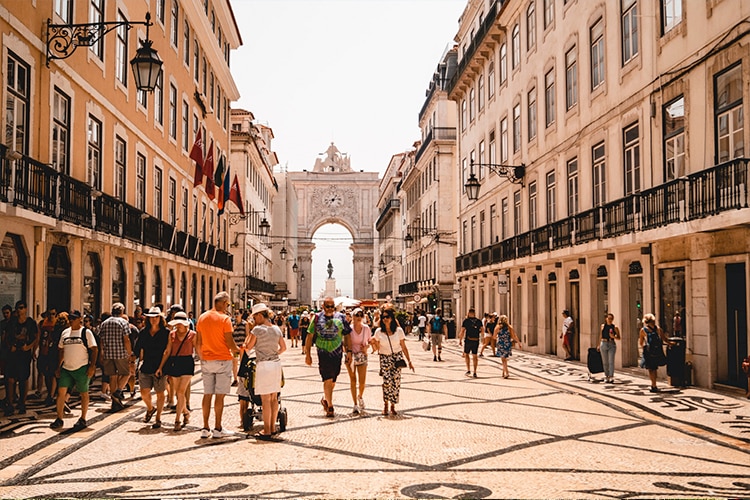
And of course, it is both similar and very different from Spanish. Never try to speak Spanish with a Portuguese national, it’s quite offensive.
Anyway, it’s not the easiest language to learn, especially for native English speakers. But it’s definitely worth learning if you’re considering living in Portugal.
6. Most of the population is Catholic
Catholicism is still the leading religion in Portugal, although many people do not practice it anymore. Indeed, since the Inquisition, this has been the dominant belief in the country.
The latest data from the 2011 Census show that around 81% of the population residing in Portugal was Catholic. However, according to Jornal Expresso in 2021:
“This number has been falling since 1991 when this question was included in the Census, and it could be even lower [in 2021].”
As society changes, both Portuguese and worldwide, people’s relationships with religions also change. Still, Christian dogmas and values are deeply rooted in Portuguese culture and customs.
Being kind and humble, for example, are typical characteristics linked to the Portuguese and what is considered to be a good Christian.
7. It has the largest consumption of Cod in the world
According to data sent to the Portuguese communication agency Lusa by the Norwegian Fisheries Council, Portugal consumes around 20% of all cod caught worldwide. This tiny country of 10 million people has made cod their favorite fish for centuries.
And interestingly, they are not fished in Portuguese waters. 70% of the cod consumed in Portugal traditionally comes from Norway. There are several dishes with typical Portuguese cod, especially at Christmas time in Portugal.
In addition to this fish, sardines and octopus are also part of the favorites list. Actually, Portugal is the world’s third-largest consumer of fish, only behind Iceland and Japan. Even so, Portuguese cuisine is nothing like those of these countries.
8. Portugal has more sea than land
Better said, Portugal has one of the largest maritime areas in the world. It’s more than 4 million km² (1,544,408 mi²) of maritime areas, making Portugal the largest coastal state in the European Union. Pretty impressive for a country with only 92 thousand km² (35,521 mi²) of land.
This is due to several international agreements and, of course, Portugal’s history as a pioneer in navigation.
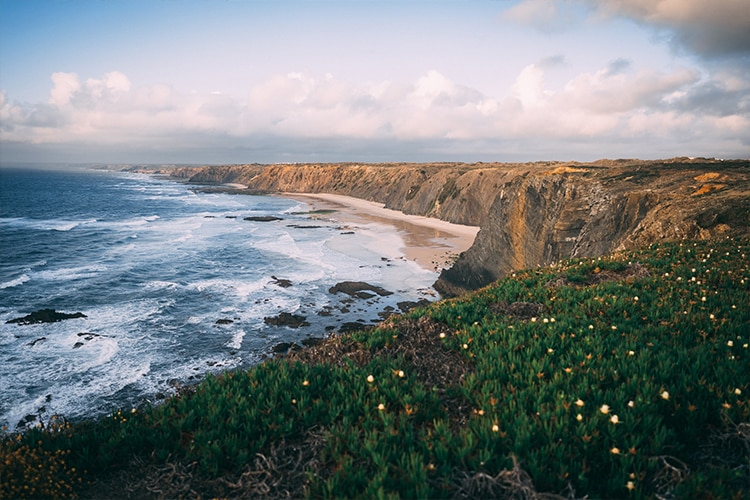
If you want to cross the North Atlantic Ocean by boat, you’ll be largely covered by the Portuguese coastguard. The Portuguese islands of Madeira and the Azores will also be there on the way to welcome you.
And they still have to buy codfish from Norway!
9. The friendliest Europeans, still known as great complainers
Ask any European who has come to Portugal to visit or even to live. The Portuguese people are one of the friendliest and most welcoming of the old continent.
Especially when compared to the British and the Germans, two large expat communities in Portugal, the Portuguese are like angels on Earth.
But this notion of Portuguese sympathy is not seen in the same way among the Portuguese themselves.
Among the locals, they are more rational and perhaps a little pessimistic about their charisma. The Portuguese see themselves as a suffering people, somewhat melancholic, and above all, complaining.
Still, whenever the Portuguese have visitors, they will be the best hosts ever and welcome guests with open arms. The best neighbors one can have.
10. Saudade is the national word and lemma
If you’ve spent time with the Portuguese, you’ve probably heard this word: Saudade.
A unique word in the Portuguese language, Saudade means to miss someone, something, or some time or place. More specifically, the feeling of melancholy that comes from not having that anymore.
Throughout the country’s history, the Portuguese have often encountered this feeling. Between comings and goings in caravels, explorations, and families that stay behind, there is plenty of room for Saudade.
11. The Portuguese are marked by migration
Not even in the 21st century the Portuguese are free from Saudade. According to the Portuguese Government High Commission for Migration:
“Portugal is currently the country in the European Union with the most emigrants in proportion to the resident population. The number of Portuguese emigrants exceeds two million, which means that more than 20% of Portuguese people live outside the country where they were born.”
All over the world, you can find communities of Portuguese immigrants. These, curiously, are the ones who most insist on keeping Portuguese traditions alive wherever they are.
12. Fado is much more than Latin music
The Portuguese musical genre Fado is the nation’s pride. But unlike what most foreigners expect of Portugal, it being a Latin and, therefore, happy country, Fado isn’t all about joy. On the contrary, it’s about melancholy and Saudade. About missing the ones you love who, as you can understand from Portuguese history, are probably somewhere else across the sea.
But Fado is not just sad. Many songs by Fado singers, especially more modern ones, talk about everyday life, Portuguese culture, and the family tradition of eating bread and drinking wine.
Wait, don’t hear it from me. Let’s hear what Fado is all about from the legendary Fado singer, Amália Rodrigues:
Especially in the oldest neighborhoods of Lisbon, you can still find many Fado houses that keep the musical tradition alive.
Even if you don’t understand the lyrics, it’s worth watching a live Fado performance every now and then. When music is good, we don’t need words. And believe me, with Fado, you feel exactly what the song tells you. Fado is enchanting and liberating.
13. Portugal has experienced an economic miracle recently
Within a decade, Portugal emerged from bankruptcy and recession to become an example of an economic plan in Europe. The US housing bubble crisis in 2008 strongly affected Portugal with the so-called public debt crisis.
During this period, Portugal went into a deep recession and had to resort to help from the EU and the IMF in 2011. The aid of more than 70 billion euros arrived in Portugal, together with the strict fiscal austerity measures of the Troika.
Even in the middle of the crisis, Portugal started to reduce public expenditures, cutting unnecessary expenses and raising taxes. Unemployment at that time reached 17.7% in 2013, and 20% of the population lived below the poverty line.
However, from 2015 until now, Portugal has seen many changes in its economy and politics. The incentive to consumption and the increase in public investment in education, together with the attraction of tourists and foreign investors with the Golden Visa, made Portugal turn the situation around.
The Portugal we see today, with growth, multinationals, and modernity, is recent. The coming of thousands of foreigners to Portugal has also helped to boost the economy, which is a great way to repay all the love Portugal gives us.
14. It is a country aware of anti-Covid regulations
Known for their obedience to the rules, or at least until someone notices anything, the Portuguese have been very well-behaved during the pandemic.
In December 2021, 87.78% of the Portuguese population was already fully vaccinated against Covid-19.
Unlike its neighbors France, the Netherlands, Germany, and so on, Portugal did not have major demonstrations against the restrictive measures to contain the advance of Coronavirus. And the measures imposed by the government were not very strict when compared to the same countries.
In general, even before the pandemic, the Portuguese were never given to protests, like the French, for example.
Whether that’s a good thing or a bad thing depends on your point of view.
15. Portugal is optimistic about the post-pandemic era
Even after the recession at the height of the pandemic in 2020, when the economy shrank 8.4%, the IMF forecasts for 2021 that Portugal will grow 4%.
Unemployment in the country is also considered low, when, in 2020, it was at 6.7%, while Spain was at 15.5%, Italy at 9.2%, and Greece at 16.3%.
Precisely for having united to fight the virus, the Portuguese population guaranteed their country an excellent Covid-safe image.
This, in turn, is not bad for tourism, as the industry was responsible for 15% of the Portuguese economy in 2019.
What do you think about Portugal now?
Getting to know a country in depth is more complicated than it sounds. We, foreigners in Portugal, usually fall in love with the country right away.
But, as it is worth remembering, traveling in Portugal is very different from living in Portugal.
As we decided to be part of that country, we also have a responsibility to learn about the Portuguese culture and essence from all sides.
I’ve been living here for almost 5 years, and I’m about to apply for my Portuguese nationality. And I couldn’t feel truly Portuguese without having spent so much time experiencing the local culture among local friends!
Knowing these 15 curiosities about Portugal may help get you started at understanding what it means to be Portuguese.
I hope you and all expats considering moving to Portugal are open-hearted for Portugal.
This complex country full of honest people has a lot to offer the well-intentioned. Welcome to Portugal, consider yourself at home, after all, you are home.




